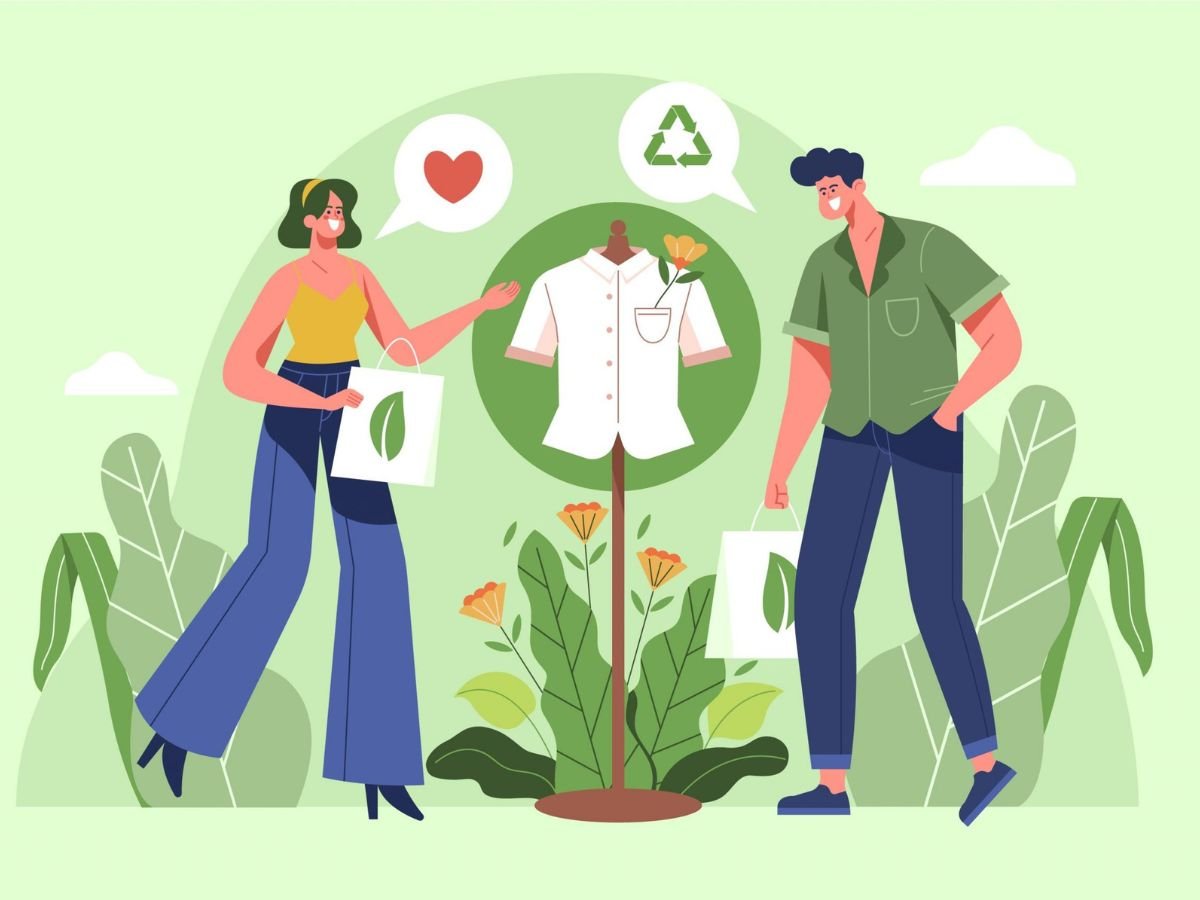As consumers, we have to be aware of how our fashion industry choices are impacting the environment. This industry has gained global notoriety for causing the maximum pollution. According to experts, it generates enormous amounts of waste, consumes vast volumes of water, and contributes significantly to carbon emissions. Every decision we make, from clothes to brands that we ought to like, is either going to mitigate or add to these environmental impacts. Much can be done to reduce the ecological footprint of the industry by consuming sustainably. For example, companies like T & A textiles and hosiery ltd store. Have already started taking ecological considerations into their product and production decisions
These businesses work not only in accord with environmental responsibility; they also spur the fashion industry toward further developing more sustainable practices. Our responsible consumption can foster positive change and provide for a greener and more sustainable fashion industry. In this article, we’ll explain why the fashion industry must prioritise sustainable practices.
Environmental Impact Mitigation
The traditional fashion industry has often been blamed for various environmental problems, such as water pollution, the clearing of forests, and the generation of large amounts of waste. On the other hand, sustainable fashion-making includes environmentally friendly operations. An example is the usage of organic materials and recyclable materials that don’t have a huge impact on water usage and energy consumption but help in decreasing levels of pollution. In this way, sustainable fashion works for the health of the planet and diminishes the ecological footprint of clothes manufacturing. Innovations in materials and production techniques further raise these efforts, thus saving natural resources and protecting ecosystems.

Ethical Practices
The fashion industry has faced many accusations of exploitative labour practices, mostly in low-wage countries where workers are put through very poor conditions. Sustainable fashion tries to correct these injustices by advocating for fair wages, safe working environments, and humane treatment for workers. Brands committed to responsible actions are those that have transparency within their supply chains and contribute to improving the condition of workers, as well as enhancing living standards. The shift in ethical fashion does not just allow for a more responsible industry; this builds trust with consumers who value integrity and fairness within their purchases.
Reduction of Waste
Fast fashion has promoted a throwaway culture where there is a huge rise in textile waste. It challenges this model by advocating for circular economy-driven asset and production methods for designing sustainable fashion. In these contexts, fashion designers’ and brands’ orientation is toward creating durable, repairable, and recyclable fashion garments. This approach encourages the reuse and re-purposing of clothing items and significantly reduces waste levels sent to landfills. In addition, it offers recycling programs and upcycling initiatives for old garments to get a new life, therefore closing the loop on lessening environmental impacts.
Consumer Empowerment
The shift in consumer attitudes toward sustainability has propelled demand for eco-friendly fashion. Since consumers are becoming more conscious regarding their choices regarding the environment and ethics, they look out for brands that best suit their values. Growing consciousness empowers them to make educated choices and support companies that focus on sustainability and ethical practices. In itself, such a consumer-driven movement gets a ripple effect and encourages more and more brands to behave responsibly. This will eventually transform the industry. Hence, choosing sustainability empowers customers to shape the future of fashion and drive changes toward environmentally and socially responsible practices.
Eco-Friendly Innovations
As sustainability becomes a growing concern for consumers, premium brands are keener on how they package their products. It defies another common argument that with luxury comes over-packaging, as proven by brands like Gucci and Burberry. With over 100 billion parcels dispatched around the world every year, most of them will be single-use plastics that end up in the trash within minutes. Big brands are now embracing alternative materials and designs that slash waste, including recyclable and biodegradable, showing luxury does not have to come at the cost of the environment.
Conclusion:
The shift the fashion industry is making toward being more sustainable is needed to deal with the great environmental and ethical challenges facing it today. It can open ways toward a much more sustainable and responsible future by applying eco-friendly materials, following the fairest methods of labour practices, satisfying consumer demand, and having the courage to use new technologies. This means that sustainability is not merely a moral or environmental duty; it is also a strategic step at a time when emerging market trends and consumer values are converging. Therefore, the way forward will be for brands, consumers, and policymakers to share responsibility in creating a fashion industry that respects people and the planet.
Also, read: How to Style Your Essentials Hoodie for Every Occasion




